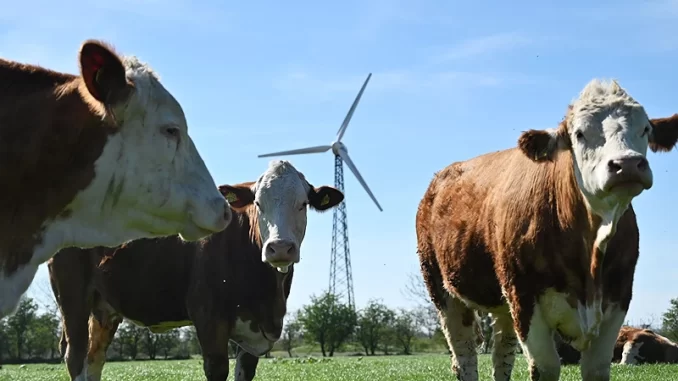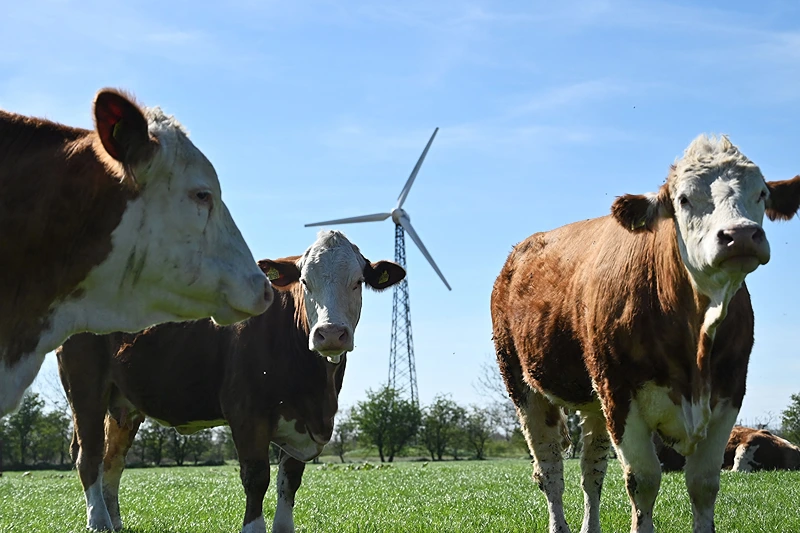

OAN’s Brooke Mallory
6:28 PM – Wednesday, June 26, 2024
Denmark proposed a “flatulence tax” plan that allegedly garnered industry-wide support and is anticipated to be adopted by the national legislature, outlet Euro News reported.
Advertisement
A bold new proposal from the Danish government states that starting in 2030, livestock farmers in Denmark will be charged for the greenhouse gases that their pigs, sheep, and cows produce.
According to Taxation Minister Jeppe Bruus, the program intends to reduce greenhouse gas emissions in Northern European nations by 70% by 2030.
“We will take a big step closer in becoming climate neutral in 2045,” Bruus said, adding that Denmark “will be the first country in the world to introduce a real CO2 tax on agriculture.”
Late on Monday, representatives of the industry, unions, and farmers came to an agreement with the government.
“As of 2030, Danish livestock farmers will be taxed 300 kroner ($43) per ton of carbon dioxide equivalent in 2030. The tax will increase to 750 kroner ($108) by 2035. However, because of an income tax deduction of 60%, the actual cost per ton will start at 120 kroner ($17.3) and increase to 300 kroner by 2035,” according to Euro News.
The U.S. National Oceanic and Atmospheric Administration claims that methane traps roughly 87 times more heat over a 20-year timeline than carbon dioxide, despite the fact that carbon dioxide usually receives more negative attention in regards to climate change marketing.
The U.N. Environment Program also claims that 32% of methane emissions caused by humans are related to livestock.
A similar bill was enacted in New Zealand and is set to go into effect in 2025. However, on Wednesday, the law was struck down from the statute book due to strong opposition from farmers and the shift in power in 2023 from a center-left to a center-right ruling alliance.
Stay informed! Receive breaking news blasts directly to your inbox for free. Subscribe here. https://www.oann.com/alerts






Be the first to comment